This article was co-authored by Trudi Griffin, LPC, MS. Trudi Griffin is a Licensed Professional Counselor in Wisconsin specializing in Addictions and Mental Health. She provides therapy to people who struggle with addictions, mental health, and trauma in community health settings and private practice. She received her MS in Clinical Mental Health Counseling from Marquette University in 2011.
There are 28 references cited in this article, which can be found at the bottom of the page.
This article has been viewed 509,550 times.
If you find yourself snacking a lot outside mealtimes, it might be because you’re hungry. It might also be because you’re bored or stressed. If you eat when you’re bored, don’t feel bad. You’re not alone! However, overeating as a result of boredom or stress may contribute to diabetes, obesity, heart disease and other serious medical conditions.[1] This also doesn’t help with your root problem, which is determining what’s causing you to snack. Fortunately, you can learn how to start healthier habits and fight back when boredom strikes.
Steps
Evaluating Your Eating Behavior
-
1Keep a food diary. Keeping a food diary can help you learn what you eat every day. It can also help you take control of your eating habits because you pay more attention to them as you note them in your diary.[2]
- Write down everything you eat and drink in a journal. Include a list of calories, if desired. You can use a paper journal to keep track of your intake or you can use your phone or computer. Consistency is very important.
- Include the time and how much you ate. For example, 9:45 a.m., 2 handfuls of M&Ms.
- Note what you were doing at the time. Also note how you were feeling. For example, 9:45 a.m., 2 handfuls of M&Ms. I ate them at my desk while I was browsing online. Felt stressed over this project at work.
-
2Review your food diary weekly. Once you have a week’s worth of diary entries, look back through them. Look for any patterns. For example, did you feel sad or stressed often when you ate? What activities were you doing (or not doing) when you ate?
- Also notice any variations in your patterns. For example, if you notice that you snack a lot at work but not much when you’re home in the evening, it might be because you don’t find your work stimulating. Or it might be because you feel more stressed at work and you use snacks as a coping mechanism.
Advertisement -
3Think about your snack habits. What foods do you choose to eat when you feel bored? Many people gravitate toward greasy, sweet or carbohydrate-laden foods when they feel upset, bored or stressed.[3]
- If you tend to eat whatever is around you, you can help yourself out by purchasing only healthy snack foods when you go shopping. If you go to the vending machines at work or school, try packing a healthy snack to take with you so you aren't tempted to visit the vending machines.
- Do you feel better after you eat outside mealtimes? Do you have more energy? Or do you feel tired?
-
4Learn your triggers. A variety of triggers make people feel like they need to eat, even if they don’t feel physically hungry. Some of these are mental and emotional, such as boredom or anxiety. Others are related to situations. For example, some people may find that they snack more when they watch TV. Maybe it feels “wrong” to see a movie without getting a popcorn and soda. Perhaps you feel pressure to eat when you’re at a party. Or maybe once you eat one doughnut, you feel like you have to eat them all. Whatever your triggers are, learning them can help you avoid mindless eating.
- Many people find themselves snacking when doing other activities (e.g., reading, watching TV). In some cases, you may eat 71 percent more calories if you eat while watching TV.[4]
-
5
Developing Healthy Eating Habits
-
1Learn to recognize real hunger. Many people can't interpret hunger cues, leading them to think they’re hungry when they’re not. If your hunger recognition is off, you can use some tricks to learn how to tell when you’re hungry.[7]
- Think about when you last ate. Hunger cycles peak every 90 minutes or so, but if you ate within the last 2 or 3 hours, you’re probably not really hungry. (Obviously, you may have different hunger needs if you're an athlete or if your job is very physical.)
- Chart your hunger on a scale from 1 to 10, where 1 is “totally full” and 10 is “I might die if I don’t get a pizza right now.” You may not be very accurate with this at first, but thinking about the scale will help you learn to think about your hunger in context.
- Watch for physical cues. A rumbling stomach, headache, feeling weak or shaky, or feeling tired for unexplainable reasons may all be signs that you need to eat.
- Think about whether you’re hungry or just experiencing a craving. In many cases, if you’re craving a particular food, such as chocolate or macaroni and cheese, you may just want comfort from a specific taste.
-
2Think differently about your eating and drinking. Research shows that how you think about what you eat and drink affects how full you feel. One study presented the same liquid as a soup and then as a beverage. People rated the soup as more filling even though they were given the exact same amount of the exact same liquid![8] You’re more likely to feel “full” if you think of what you’ve eaten as a meal rather than a snack.[9]
- Putting everything you eat, including snacks, on a plate may help you control mindless eating. Using small plates will help you control portion sizes, too.
- Try scheduling your snacks to help you cut down. If you’re “supposed” to be eating at a particular time, you may be more mindful of what you consume.
-
3Choose more filling foods. If you find yourself eating a lot between meals, try making your meals more filling. Research shows that feeling full, or “satiated,” makes you less likely to overeat. Foods with a lot of fiber, such as fruits, vegetables and whole grains, will help you feel full for a longer period of time.
- Foods that are high in water, such as vegetables and fruits, are very good for helping you feel full. Try to incorporate these into all of your meals. If you must snack, choose a handful of carrots over a handful of chips: 1 ounce of carrots contains a mere 25 calories, vs. 152 calories in 1 ounce of potato chips.
-
4Eat breakfast. If you’re the type to skip a healthy breakfast in favor of a latte, you might want to reconsider. Numerous studies show that people who skip breakfast are more likely to overeat throughout the day. They’re also more likely to eat unhealthy snacks, such as high-fat or high-sugar foods.[10]
- Breakfasts low in sugar and high in protein are the best choice for feeling attentive and less hungry throughout the day.
- Eating breakfast also enhances your attention and performance throughout the day.[11] Because boredom can often stem from an inability to pay attention to your own thoughts and your environment, the cognitive boost from eating breakfast regularly may help keep you from getting bored.
-
5Slow down and savor. It takes up to 20 minutes for your brain to feel “satisfied” after you eat. If you eat your meals and snacks quickly, you may end up eating a lot more than you need because you haven’t given your brain time to catch up with your mouth.
- If you have to have a chocolate bar, buy the miniature bars and eat only one. Research shows that you can learn to be just as satisfied by a small portion of a comfort food as by a bigger one.
-
6Put the snacks out of sight. Research shows that keeping snacks and sweets visible and within reach, such as on your desk, increases consumption. Even having to get up and walk across a room for a snack significantly lessens your likelihood of snacking.
Developing Healthy Lifestyle Habits
-
1Do something creative. Research shows that doing something boring can actually prompt you to be more creative in solving problems.[12] If you find yourself bored, try shifting your focus to something that encourages creative brainstorming or problem-solving.
- For example, studies suggest that when you’re bored, doing an activity such as making a list of every use that a particular item could have can get you out of your rut. Puzzles and other activities that ask you to think creatively could also be helpful.
-
2Find an activity that occupies your hands. Try a manicure, needlework or knitting. If you play an instrument, this is a good time for practicing. You won’t be able to snack if your nails have to dry!
- Any activity that can help you wait out a craving for snacks, even if for only a few minutes, is a good idea. You can use the time to consider whether you really are hungry or whether you just want to eat because you haven’t found something else to do.[13]
-
3Connect with friends. A lack of meaning is often a trigger for boredom. When you’re bored, you don’t feel stimulated or engaged with your environment. Connecting with others who are meaningful to you in a social environment can lessen feelings of boredom.[14]
- If you can’t be with friends in person, connecting with friends over social networks or via text messages or a phone call can help relieve your boredom.[15]
- If you’re at a party and don’t know anyone, make a game of it. Can you say something interesting or complimentary to even one or two people? Focusing on small, interpersonal interactions may help relieve boredom.[16]
-
4Get some exercise. Exercise releases endorphins, the body’s natural “feel-good” chemicals. A brisk walk or short workout can elevate your mood and boost your energy. The exertion may also help distract you from your urge to eat.[17]
Understanding Boredom and Stress
-
1Learn when boredom can strike. Many things can cause you to feel bored. Standing in line at the grocery store and getting stuck in traffic are common causes for boredom.[18] Individuals with jobs where they perform repetitive tasks and don’t interact with peers may also find themselves bored.[19] In general, people find situations that are time-based more boring than situations that are effort-based. Situations with uncertain rewards or little feedback may also produce boredom.
- For example, no matter how well you drive, if you’re stuck in traffic, no effort of yours can change the fact that you’re stuck. You simply have to wait until the traffic clears up. You are also unclear about when the traffic may clear up; it could be 10 minutes or two hours. This is a prime situation for boredom because you can't change the situation with your own effort, and you don’t know when or if your “reward” will come.
- People tend to be most satisfied when they are challenged but still able to complete a task. If they expect to succeed and have some sort of pay-off for completing the task, they are less likely to feel bored.[20]
- Some people have a higher level of “trait” boredom, where they are more likely to feel bored even in situations most people would not rate as boring.
-
2Be aware of your body. When you’re bored, your body posture and head pose change. People who feel bored often slouch or lean back in their chairs. Their heads may fall forward. Other physical signs of boredom include difficulty keeping your eyes open or a feeling of sleepiness.
- Some people react to boredom with agitation, rather than lethargy. These people may pace, tap or jiggle their feet, or drum on furniture with their fingers.[21]
-
3Recognize how boredom feels. Boredom is more than not having anything to do. In fact, people feel bored when they want stimulation but can’t connect to what’s around them. Boredom is that feeling of dissatisfaction that comes when you can’t engage with yourself or your environment.[22]
- You can feel bored even in high-stimulation environments if you’re having trouble connecting with what’s around you. For example, if you don’t know anyone at a cocktail party, you might still feel bored even if there’s a lot going on.
- Researchers suggest that there are several components of feeling bored. Boredom occurs when you have a hard time paying attention to internal information (thoughts, feelings) and/or external information (what’s going on around you). You need this information to participate in activities that feel satisfying (the feeling opposite to “bored”).[23]
- When you become aware of the fact that you’re having a hard time with paying attention, you look for a reason for your difficulty.
- You may explain why you’re having trouble connecting by assigning responsibility to your environment. For example, you might say, “I have nothing to do.” You likely do have things you could do, but boredom puts the responsibility elsewhere.
-
4Learn to recognize stress. You might be interpreting stress as “boredom.” Stress may also be causing you to have trouble connecting to your environment, which you may interpret as being in a “boring” situation. If you feel fidgety or irritated or if you have difficulty concentrating or making decisions, you may be experiencing stress.[24]
- Stress has been shown to cause problems for your attention span. When you’re stressed, you may have trouble focusing or feeling interested in things.[25] This is the perfect breeding ground for boredom.
- Everyone experiences stress in different ways. For some people, stress manifests itself as physical symptoms, such as headaches, an upset stomach, heartburn, fatigue, and muscle aches and tension. For others, it manifests itself as feelings of anger, sadness or depression. You may even experience a mixture of these symptoms.[26]
-
5Recognize procrastination. When you’re worried that you won’t be successful at something you set out to do, you’re more likely to procrastinate.[27] Work-related stress, such as the fear of failing at an important task or looking bad to your superiors, is a common cause of procrastination. If you’re putting off doing something you need to do, you may choose to eat as a form of distraction. Your food diary may help you recognize when you’re eating because you really don’t want to do something else.
- You may be able to fight procrastination by setting yourself firm deadlines for your projects.[28]
- Reducing the sources of stress whenever possible can also help you avoid procrastination.
- Try not to judge yourself too harshly for procrastinating. Research shows that forgiving yourself and preparing to do better the next time is more productive than beating yourself up over it.[29]
Warnings
- If your eating feels uncontrollable and you don’t feel better after you eat, you may have an eating disorder. It’s important to talk with your physician or a mental health professional about your eating patterns.⧼thumbs_response⧽
References
- ↑ http://www.ncbi.nlm.nih.gov/pubmed/11707547
- ↑ http://www.nlm.nih.gov/medlineplus/ency/patientinstructions/000349.htm
- ↑ http://www.sciencedaily.com/releases/2003/09/030911072109.htm
- ↑ http://www.sciencedirect.com/science/article/pii/S003193840600223X
- ↑ http://www.sciencedirect.com/science/article/pii/S0002822308021901
- ↑ http://www.calmclinic.com/anxiety/symptoms/excessive-thirst
- ↑ https://www.pennmedicine.org/updates/blogs/health-and-wellness/2020/april/how-to-understand-hunger-cues
- ↑ http://www.ncbi.nlm.nih.gov/pmc/articles/PMC4063786/
- ↑ http://www.ncbi.nlm.nih.gov/pubmed/16442668
- ↑ http://www.nature.com/ijo/journal/v34/n7/full/ijo20103a.html
- ↑ http://www.ncbi.nlm.nih.gov/pmc/articles/PMC3737458/
- ↑ http://www.tandfonline.com/doi/full/10.1080/10400419.2014.901073#.VQnI5qPN5pQ
- ↑ https://www.psychologytoday.com/us/blog/bad-appetite/201112/do-you-eat-out-boredom
- ↑ http://www.ncbi.nlm.nih.gov/pubmed/15270068
- ↑ http://www.com.cuhk.edu.hk/ccpos/b5/pdf/18%20Ch%2018%20Mediated%20Interpersonal%20Communication.pdf
- ↑ https://www.jstor.org/stable/173452?seq=1
- ↑ http://www.mayoclinic.org/healthy-living/fitness/in-depth/exercise/art-20048389
- ↑ http://www.sciencedirect.com/science/article/pii/S0191886913012373
- ↑ https://journals.sagepub.com/doi/abs/10.1177/097135571102000203
- ↑ https://www.biospace.com/article/new-research-suggests-frequent-rewards-can-improve-motivation-performance-at-work/
- ↑ http://www.apa.org/monitor/2013/07-08/dull-moment.aspx
- ↑ https://journals.sagepub.com/doi/abs/10.1177/1745691612456044
- ↑ https://journals.sagepub.com/doi/abs/10.1177/1745691612456044
- ↑ http://www.apa.org/helpcenter/stress-tips.aspx
- ↑ http://www.edweek.org/ew/articles/2012/10/10/07boredom_ep.h32.html
- ↑ http://www.mayoclinic.org/healthy-living/stress-management/in-depth/stress-symptoms/art-20050987
- ↑ http://psycnet.apa.org/psycinfo/1985-07993-001
- ↑ http://pss.sagepub.com/content/13/3/219.short
- ↑ http://www.sciencedirect.com/science/article/pii/S0191886910000474
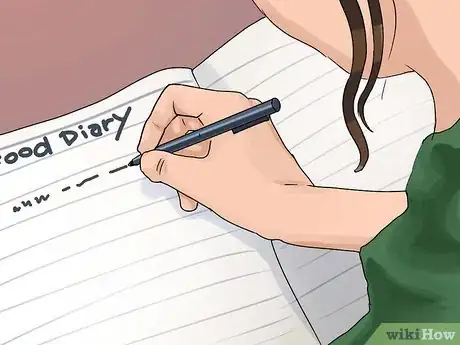
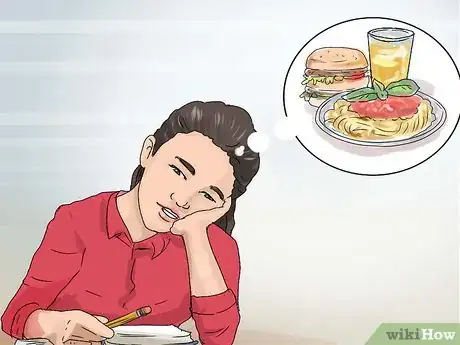



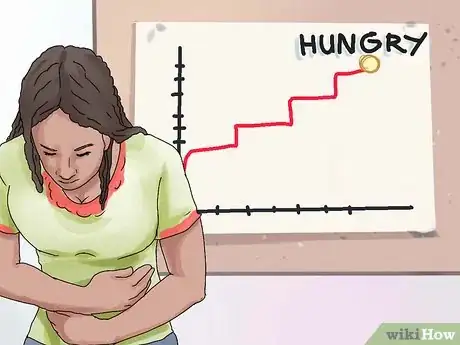

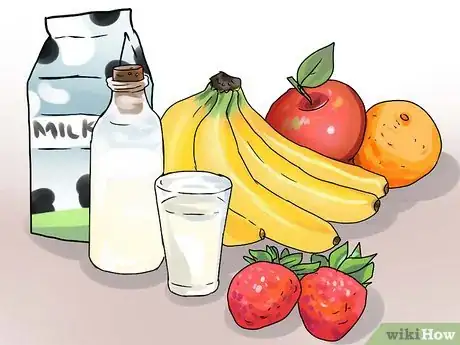
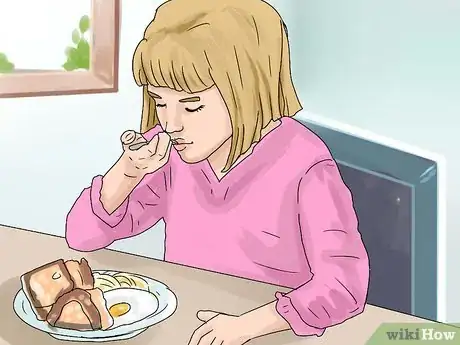


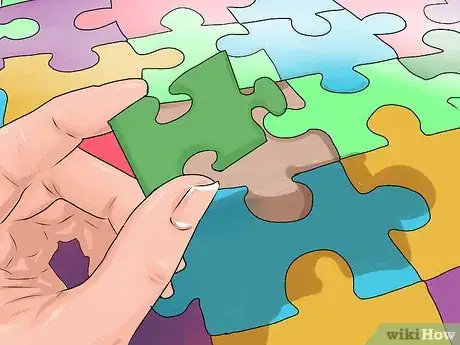

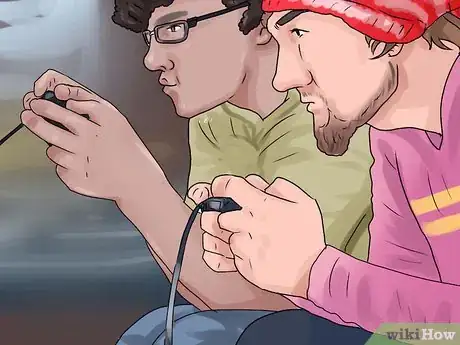


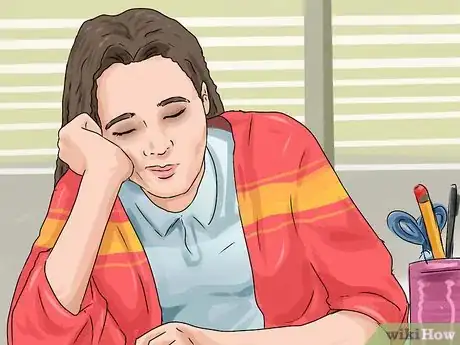
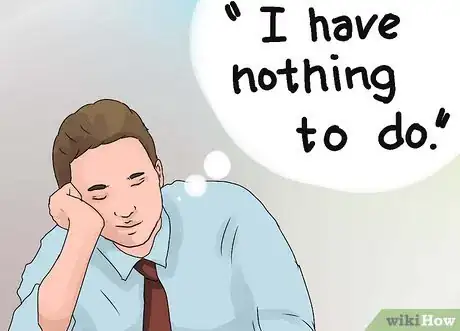
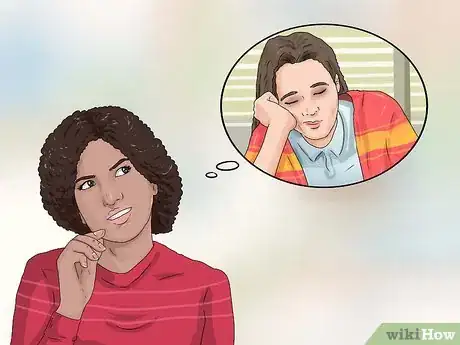




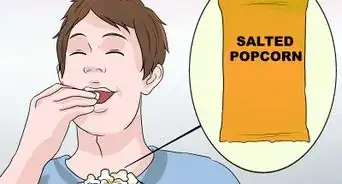
















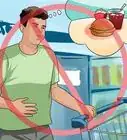

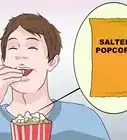



































Medical Disclaimer
The content of this article is not intended to be a substitute for professional medical advice, examination, diagnosis, or treatment. You should always contact your doctor or other qualified healthcare professional before starting, changing, or stopping any kind of health treatment.
Read More...